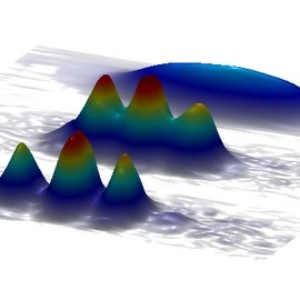| Zeit: | 21. – 25. September 2020 |
|---|---|
| Referent*in: | List of invited speakers |
| Veranstaltungsort: | Physikzentrum Bad Honnef Hauptstraße 5 53604 Bad Honnef |
| Download als iCal: |
|
Interacting particles are ubiquitous in nature and understanding their behavior at the quantum level is one of the most challenging topics of modern physics. For neutral atoms or molecules, electric or magnetic dipolar forces govern the interaction between particles. In the ultracold domain (T << 1 mK), van der Waals and long range dipole-dipole interactions can compete to produce novel states of quantum matter such as supersolids where superfluidity and discrete spatial order co-exist.
In the last decade spectacular advances have been made in understanding the physics of long range interacting quantum systems made of atoms and molecules. This is because atoms and molecules can be cooled and controlled using laser light and magnetic or electric fields. They can be prepared in well-defined quantum states i.e. electronic ground or even high lying excited Rydbergs states, or in specific nuclear spin states, or vibrational and rotational states for molecules. Laser light can be used to confine individual particles in optical tweezers or a collection of atoms in tailored optical potentials such as optical lattices or to engineer light mediated interactions between particles when placed in an optical cavity. Furthermore artificial atoms called cavity polaritons (hybrid light-matter quasi particles) offer new possibilities for investigating long range interactions.
The scope of this workshop will be to discuss recent advances in the physics of long range interacting systems in a variety of platforms, Rydberg atoms, magnetic atoms, dipolar molecules, trapped ions, light-induced dipoles and artificial atoms. The workshop also aims at identifying further challenges and opportunities in this fast growing field. The scientific program will involve invited talks, two poster sessions and six contributed talks selected from the poster abstracts. The workshop is also expected to further develop collaborative projects between Germany and France. The conference language will be English. The Wilhelm and Else Heraeus-Foundation bears the cost of full-board accommodation for all participants.
Prof. Dr. Christophe Salomon (Ecole Normale Supérieure, Paris, France)


